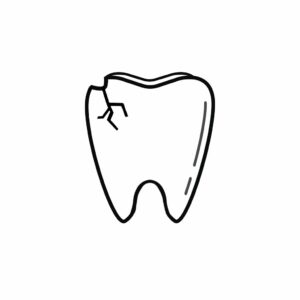Your mouth is a gateway. Whatever you eat or drink enters your body through your mouth, and what’s already there can have an impact on your body as well. Bacteria of all kinds are present in your mouth. While some are benign, others may pose a threat to your health.

Maintaining a daily oral hygiene routine and visiting our dental office for regular appointments can help keep your mouth free of harmful bacteria. Below are 3 common ailments that have been shown to be negatively impacted by poor oral health. If you suffer from any of these conditions and are worried that your oral health might be a contributing factor, contact our team for an examination and cleaning today!
Diabetes
Millions of Americans suffer from diabetes, and the disease can have many complications associated with it. A connection has been shown between diabetes and gum disease in many patients. Oral health problems often increase in frequency for patients with diabetes. Gingivitis and periodontitis are more common because these patents are at a higher risk of bacterial infection and are less able to combat harmful bacteria. Blood glucose levels can also be affected by gum disease, potentially putting a patient with diabetes at a higher risk for additional health problems.
Rheumatoid Arthritis (RA)
RA is an autoimmune disease that affects 1.5 million people in the US alone. This chronic inflammatory disorder affects joints and is caused by the body’s immune system attacking its own tissues. Patients with RA are more likely to suffer from gum disease and periodontitis. Likewise, patients with periodontal issues have been shown to have nearly twice the risk of developing RA according to a study conducted by the University of Minnesota, Minneapolis.
Lung Conditions
Once bacteria enter your blood stream through your mouth, they can travel through your body and affect other locations. Conditions like bronchitis and pneumonia can be caused by malignant bacteria settling into a patient’s lungs. Other existing issues such as emphysema and pulmonary disease can be exacerbated by the invading bacteria.
If you suffer from any of these conditions or are concerned that poor oral health might be putting you at risk, please contact our office today. Our dedicated team will be happy to provide you with a treatment plan and prevention tips based on your current health




 Your smile is the first thing someone notices about your face. Cosmetic imperfections can influence the way you view yourself, impacting your level of self-confidence. Oral and facial surgery is dedicated to helping you live a healthy, confident life. Oral and facial surgery can improve your appearance and your health.
Your smile is the first thing someone notices about your face. Cosmetic imperfections can influence the way you view yourself, impacting your level of self-confidence. Oral and facial surgery is dedicated to helping you live a healthy, confident life. Oral and facial surgery can improve your appearance and your health.









